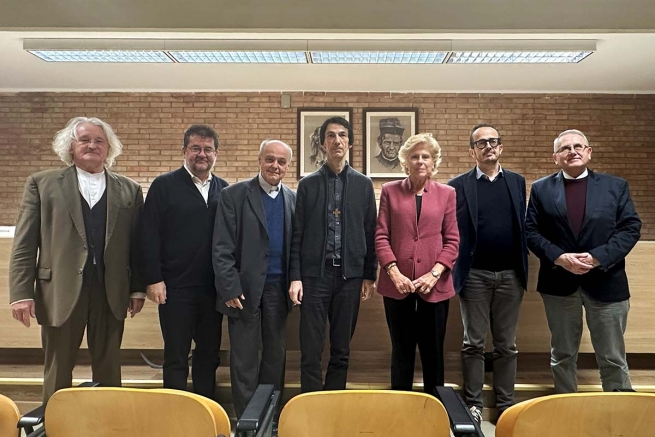After the ten volumes of St John Bosco's Epistolary, the ISS now offers an additional tool to get to know the rich personality of the saint and enter more deeply into his perspectives, feelings and inner life. This is the study edition of the Preaching of the Founder of the Salesian Congregation, published by the university publisher LAS.
The work contains the critical edition of the autograph manuscripts of 42 sermons composed over more than a forty year period: from panegyrics written during his seminary years (1836-1841), to the address he gave on the occasion of the consecration of the church of St John the Evangelist in Turin on 28 October 1882.
It is a particularly significant documentation for following the cultural, pastoral and spiritual evolution of the Piedmontese saint. From Don Bosco in the first place – as Fr Eugenio Ceria wrote about the parish instructions given during the three-year period spent at the Convitto (1841-1843) – to Don Bosco in his mature years, a respected and venerated figure invited to speak on important occasions such as the consecration of the Basilica of Saint Mary Major in Vercelli, the feast of Saint Philip Neri in the diocese of Alba, or the meditation on the seven last words of Christ on the cross at the Arcadia Academy in Rome on Good Friday 1876.
Some of these manuscripts, such as the ones for the feasts of Our Lady and the panegyric for Saint Philip Neri, are very important for an understanding of the spirituality of Don Bosco, apostle of the young, founder and teacher of spiritual life.
Six speakers spoke following the greeting by the Rector Magnificus, Prof. Fr Andrea Bozzolo.
Prof. Massimo Schwarzel, SDB, one of the curators of the text, spoke about the problems inherent in the critical edition of the manuscripts and illustrated the editorial criteria adopted. Prof. Gianpaolo Fassino, professor of cultural anthropology at the University of Eastern Piedmont, presented the historical context and customs of the popular festivals in which the cleric Bosco delivered panegyrics in honour of Saint Anne, Saint Rocco, Saint Bartholomew and the Assumption.
Professor Adriana Pelo, emeritus researcher in Italian linguistics and philology at the Roma Tre University, with a highly appreciated report, paused to illustrate the linguistic and textual aspects of Don Bosco's preaching. Prof. Aldo Giraudo, another curator, spoke about John Bosco's rhetorical formation, from elementary schools to his years at the Convitto.
Two addresses on particular issues followed. Prof. Fr Giuseppe Biancardi, professor emeritus of the history of catechesis, focused on the instructions and meditations to the people prepared by the saint during his years at the Convitto, and Prof. Fr Antonio Escudero Cabello illustrated the particular features of Don Bosco's Mariology, with an address entitled: The confident invocation of the Mother of God in the preaching of Don Bosco, Marian devotion and pastoral ministry.
The symposium, moderated by the Coordinating Secretary of the Salesian Historical Institute, Prof. Fr Stanisław Zimniak, SDB, was appreciated by the participants and by the many people who connected online.


